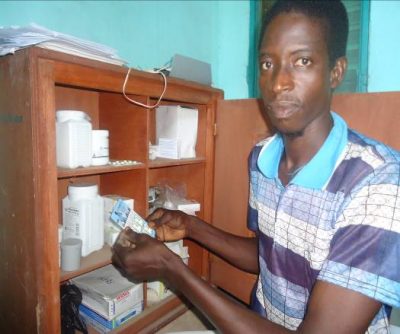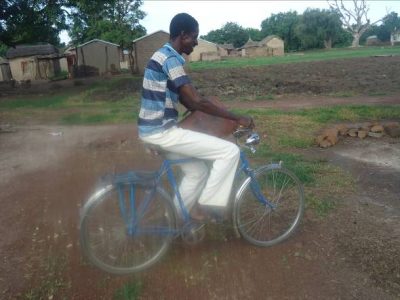Thanks to the efforts of Mr. Dagnon and other community health agents, Malians in rural areas are able to access health services closer to home.

Mamoutou Dagnon, a community health agent, with the drugs and other supplies he uses to do his work. Source: Save the Children
In 2010, Mr. Dagnon attended a 12-day training on the management of uncomplicated malaria cases followed by a training on Essential Community Care one year later. Upon completion of this training, he was posted to Shiembougou Village, seven kilometers from the nearest community health center. In addition to Shiembougou, Mr. Dagnon covers three satellite villages, with a total population of more than 5,000 people. The community members of Shiembougou welcomed him warmly and provided him with a two-room home for his family, and a two-room consultation center.

Mamoutou Dagnon on the bicycle he uses to commute to the villages in his catchment area. Source: Save the Children
In general, the number of sick children accessing CHA services is relatively low due, in part, to families’ adoption of preventative health behaviors, such as consistently sleeping under insecticide-treated mosquito nets and improved hygiene and sanitation. Thanks to the efforts of Mr. Dagnon and other community health agents, Malians in rural areas are able to access health services closer to home.
